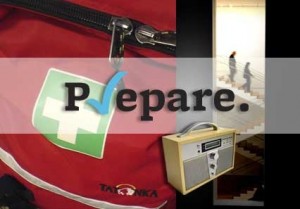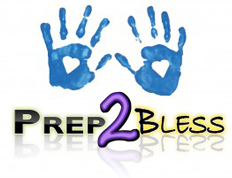 Emergency Prepping shouldn’t be complicated! We wanted to make prepping simple, logical and something that anyone could do. After reviewing dozens of well developed lists we broke it into categories and identified well known stories that explained these principles. The “Five Steps to Basic Prep” will help you get your planning done more quickly and within your budget. (In fact you may already have most of these items in your closet or garage.)
Emergency Prepping shouldn’t be complicated! We wanted to make prepping simple, logical and something that anyone could do. After reviewing dozens of well developed lists we broke it into categories and identified well known stories that explained these principles. The “Five Steps to Basic Prep” will help you get your planning done more quickly and within your budget. (In fact you may already have most of these items in your closet or garage.)
The Five Steps (with the five well known biblical heroes) are a Prepping 101 class that provide a foundation for you and your families security.
THE PREP2BLESS – FIVE STEPS to Basic PREP
1. Family Emergency Plan – Do you have one? Just like you plan for a fire drill, your family plan will tell everyone where to go and what to do. Remember, in the case of evacuation, 9 MINUTES is all most families get. How would your family do? It starts with writing down emergency numbers and includes building a FAMILY EMERGENCY KIT. This kit should include items that you may need in the case of loss of electricity, damage to your house or evacuation.
2. 3-7 Days of Provision – Would you have enough water, food, medicine and cash if there wasn’t any power or stores open? What about those in your family with special needs or physical limitations? Do you have enough
medicine to last. The food should be precooked, packaged and in cans or pouches. You need a minimum of one gallon of water a day per person to get by.
3. Shelter & Medical – Would you be able to shelter in your home if there was severe weather? Do you know where the safest place in your house is? And if you had to hunker down due to an ice storm, how would you keep warm? Do you have flashlights, batteries or a generator? What about sanitation if there was no water? Do you have a fire plan that the whole family understands? Are you prepared to evacuate your home if you only had 15 minutes warning? What would you need to take with you that really mattered?
4. Safety – If a hurricane hit, would your family and neighborhood be safe? Who are the people, neighbors your can rely on? Who do you trust and who would be there to help you turn off a leaking gas line or be ready with a chainsaw if the trees were down? Who will check on you to make sure you are ok? And who can you link with to share, trade and protect resources.
5. Long Range Planning/Supplies – In the case of a serious disaster, flu quarantine or even the loss of a job; have you set aside enough food, cash or water to survive for a week, month or even longer? Do you have enough medicine to take Have you thought about starting a garden, increasing your saving, getting a generator, putting in solar panels, canning food, getting a rain barrel for water collection or water filtration? Long range planning is more than having enough food it is thinking about who is your community and working together. It takes a team to win a game and team work to make it through disasters.

Download a copy of the five_steps2
To start on your Family Emergency plan.


